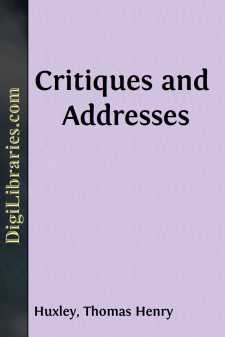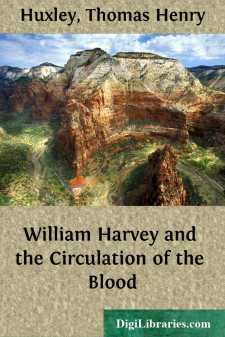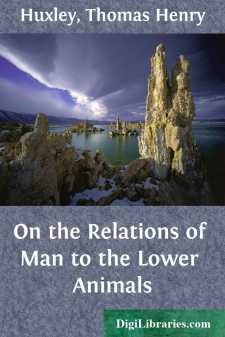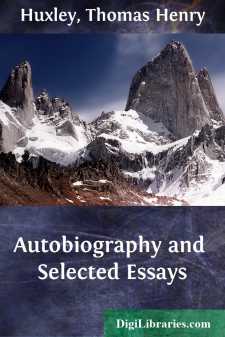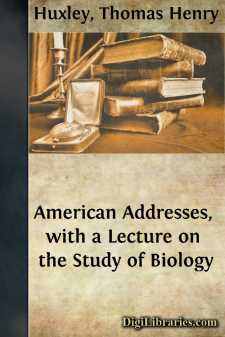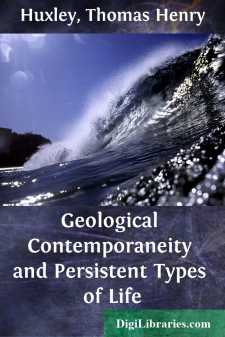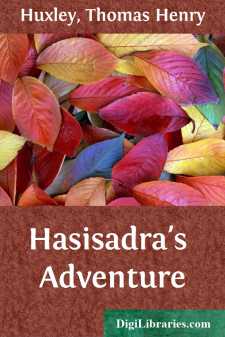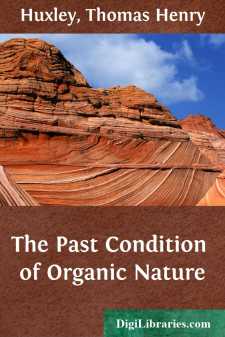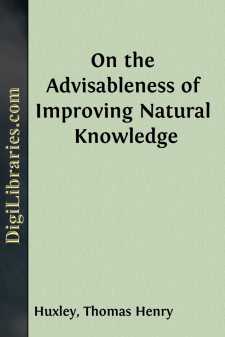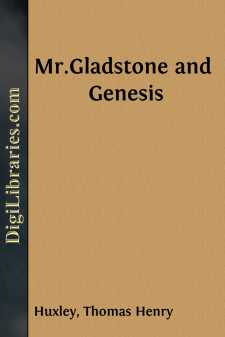Categories
- Antiques & Collectibles 13
- Architecture 36
- Art 48
- Bibles 22
- Biography & Autobiography 815
- Body, Mind & Spirit 144
- Business & Economics 28
- Children's Books 18
- Children's Fiction 14
- Computers 4
- Cooking 94
- Crafts & Hobbies 4
- Drama 346
- Education 58
- Family & Relationships 59
- Fiction 11834
- Games 19
- Gardening 17
- Health & Fitness 34
- History 1378
- House & Home 1
- Humor 147
- Juvenile Fiction 1873
- Juvenile Nonfiction 202
- Language Arts & Disciplines 89
- Law 16
- Literary Collections 686
- Literary Criticism 179
- Mathematics 13
- Medical 41
- Music 40
- Nature 179
- Non-Classifiable 1768
- Performing Arts 7
- Periodicals 1453
- Philosophy 65
- Photography 2
- Poetry 896
- Political Science 203
- Psychology 44
- Reference 154
- Religion 515
- Science 126
- Self-Help 85
- Social Science 83
- Sports & Recreation 34
- Study Aids 3
- Technology & Engineering 59
- Transportation 23
- Travel 463
- True Crime 29
Thomas Henry Huxley
Thomas Henry Huxley (1825-1895) was an influential English biologist and anthropologist known for his strong advocacy of Charles Darwin's theory of evolution. Often referred to as "Darwin's Bulldog," Huxley fervently defended evolutionary theory against critics and contributed significantly to the public understanding of science. He also played a crucial role in developing scientific education in Britain, emphasizing the importance of empirical evidence and rational thought.
Author's Books:
Sort by:
I. ADMINISTRATIVE NIHILISM. (AN ADDRESS TO THE MEMBERS OF THE MIDLAND INSTITUTE, OCTOBER 9TH, 1871.) To me, and, as I trust, to the great majority of those whom I address, the great attempt to educate the people of England which has just been set afoot, is one of the most satisfactory and hopeful events in our modern history. But it is impossible, even if it were desirable, to shut our eyes to the...
more...
I DESIRE this evening to give you some account of the life and labours of a very noble Englishman—William Harvey. William Harvey was born in the year 1578, and as he lived until the year 1657, he very nearly attained the age of 80. He was the son of a small landowner in Kent, who was sufficiently wealthy to send this, his eldest son, to the University of Cambridge; while he embarked the others in...
more...
THE question of questions for mankind—the problem which underlies all others, and is more deeply interesting than any other—is the ascertainment of the place which Man occupies in nature and of his relations to the universe of things. Whence our race has come; what are the limits of our power over nature, and of nature's power over us; to what goal we are tending; are the problems which...
more...
I — THE LIFE OF HUXLEY Of Huxley's life and of the forces which moulded his thought, the Autobiography gives some account; but many facts which are significant are slighted, and necessarily the later events of his life are omitted. To supplement the story as given by him is the purpose of this sketch. The facts for this account are gathered entirely from the Life and Letters of Thomas Henry...
more...
THE THREE HYPOTHESES RESPECTING THE HISTORY OF NATURE. We live in and form part of a system of things of immense diversity and perplexity, which we call Nature; and it is a matter of the deepest interest to all of us that we should form just conceptions of the constitution of that system and of its past history. With relation to this universe, man is, in extent, little more than a mathematical point;...
more...
MERCHANTS occasionally go through a wholesome, though troublesome and not always satisfactory, process which they term "taking stock." After all the excitement of speculation, the pleasure of gain, and the pain of loss, the trader makes up his mind to face facts and to learn the exact quantity and quality of his solid and reliable possessions. The man of science does well sometimes to imitate...
more...
Some thousands of years ago there was a city in Mesopotamia called Surippak. One night a strange dream came to a dweller therein, whose name, if rightly reported, was Hasisadra. The dream foretold the speedy coming of a great flood; and it warned Hasisadra to lose no time in building a ship, in which, when notice was given, he, his family and friends, with their domestic animals and a collection of...
more...
IN the lecture which I delivered last Monday evening, I endeavoured to sketch in a very brief manner, but as well as the time at my disposal would permit, the present condition of organic nature, meaning by that large title simply an indication of the great, broad, and general principles which are to be discovered by those who look attentively at the phenomena of organic nature as at present displayed....
more...
This time two hundred years ago—in the beginning of January, 1666—those of our forefathers who inhabited this great and ancient city, took breath between the shocks of two fearful calamities: one not quite past, although its fury had abated; the other to come. Within a few yards of the very spot on which we are assembled, so the tradition runs, that painful and deadly malady, the plague, appeared...
more...
In controversy, as in courtship, the good old rule to be off with the old before one is on with the new, greatly commends itself to my sense of expediency. And, therefore, it appears to me desirable that I should preface such observations as I may have to offer upon the cloud of arguments (the relevancy of which to the issue which I had ventured to raise is not always obvious) put forth by Mr....
more...


